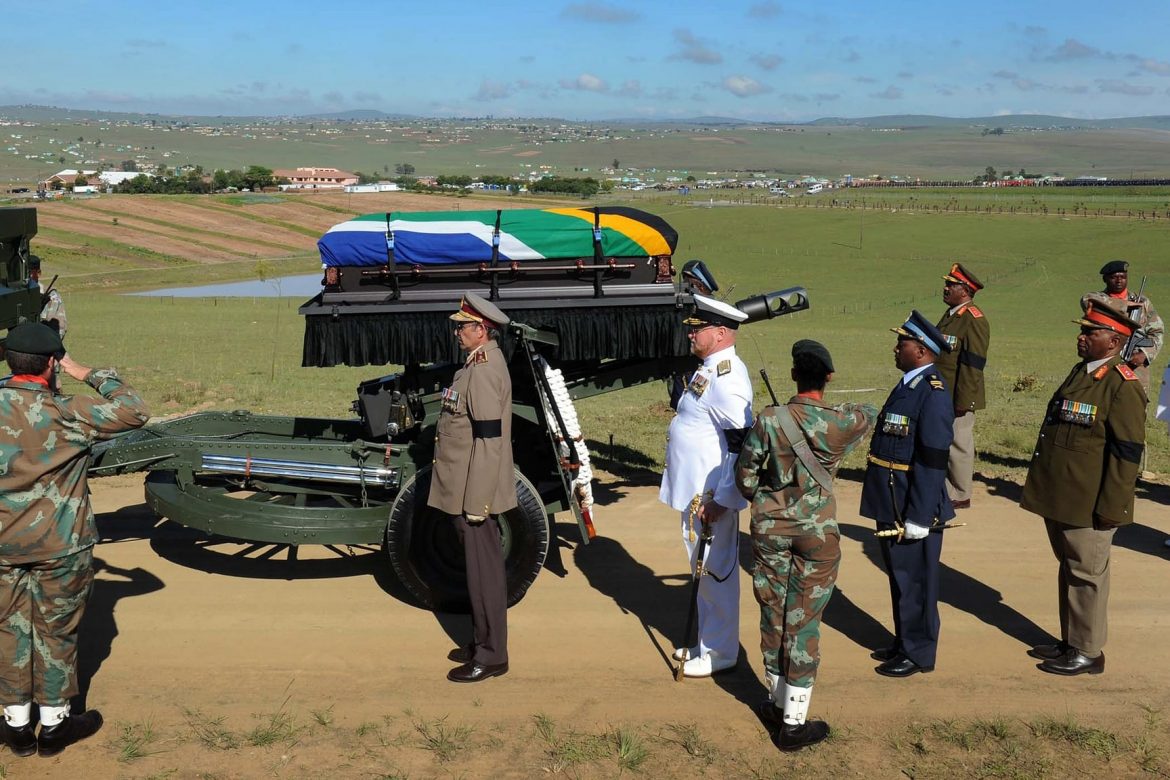This material belongs to: The Guardian.
South Africa’s anti-corruption watchdog alleges £16m intended for memorial events in 2013 was stolen and misspent by officials.
Nelson Mandela’s family have expressed “indignation and dismay” at allegations that officials stole and misspent more than £16m intended for memorial events after the anti-apartheid leader’s death in 2013.
South Africa’s anti-corruption watchdog said last week it had found evidence that millions of dollars disappeared during preparations for Mandela’s memorial and funeral.
Officials are alleged to have inflated costs, awarded tenders fraudulently and generally mismanaged the state occasion, which was attended by leaders from around the world.
Mandela’s eldest grandson, Mandla, said on Wednesday that the family had reacted with “utter indignation and dismay” to the allegations.
“We find it incredulous that while we, as a family, a nation – and indeed the world – were mourning the loss of our elder, icon, leader and statesman, some people were allegedly conniving to profit financially by shamelessly siphoning off funds,” he said in a statement.
“The guilty parties should face the full wrath of the law.”
Mandela died on 5 December 2013, aged 95, and was buried in his home village of Qunu in the country’s south-east on 15 December.
Busi Mkhwebane, South Africa’s public protector, said about 300m rand (£16.5m) of state funds intended for the memorial and funeral were misspent.
“It is unfathomable that a legacy built on principled action, integrity and a high degree of ethical standards should be so sullied and allegedly be associated with such criminal intent,” said the family.
The row comes at a bad time for the African National Congress (ANC), which has held power in South Africa since elections in 1994 ended the racist apartheid regime.
The party is meeting this weekend to choose a new leader to replace Jacob Zuma, who has led the party since 2007 and the country since 2009.
The main contenders to succeed him are Cyril Ramaphosa, a prominent trade unionist during the struggle against apartheid and now a multimillionaire businessman, and Nkosazana Dlamini-Zuma, the president’s ex-wife and a former senior minister.
Ramaphosa heads the broadly reformist wing of the ANC while Dlamini-Zuma is seen as the continuity candidate.
The allegations of graft and mismanagement at Mandela’s funeral will reinforce the impression of widespread corruption within the party.
Zuma faced harsh criticism from judges on Wednesday after the failure of his attempt to block a report by the previous public protector into allegations of undue influence exerted on his administration by a wealthy business family.
The president was ordered to pay the costs of his legal challenge.
Support for the ANC, though still strong, has flagged in recent years and the party lost power in several major cities in municipal polls last year.
Opposition parties were among the first to raise the alarm over the funeral, demanding an investigation into how taxpayers’ money was misused.
Mandela’s long-serving personal assistant Zelda la Grange described the funeral planning process as “chaos” in a memoir published six months after his death.
“I had never experienced such chaos,” she wrote, saying that plans were changed every few minutes.
She said: “One could not help but wonder whether it was just eight years of bad planning, wasting money on foreign travel to consult with other countries about events of this magnitude, or whether it was a deliberate attempt to exclude from Mandela’s funeral people who were not allied with the right people.”
In her report, the public protector, an independent office with a constitutional mandate to combat maladministration and injustice, found that “money meant for infrastructure and social development … the provision of running water, electricity, sanitation, the replacement of mud schools and the refurbishment of hospitals” had been diverted to pay for T-shirts and catering and to transport mourners.
The Eastern Cape province, where the funeral took place, has some of the highest poverty levels in South Africa.
The investigation also found tendering procedures had been widely flouted and suppliers had inflated prices.
“How do you charge 350 rand for a T-shirt? That is exorbitant … where is your conscience for charging the state so much money for a T-shirt? It’s very concerning,” Mkhwebane said this month.
News website the Daily Maverick said the report was “a depressing reminder that no South African occasion is considered off-limits where graft is concerned”.
 info@anticorr.media
info@anticorr.media

